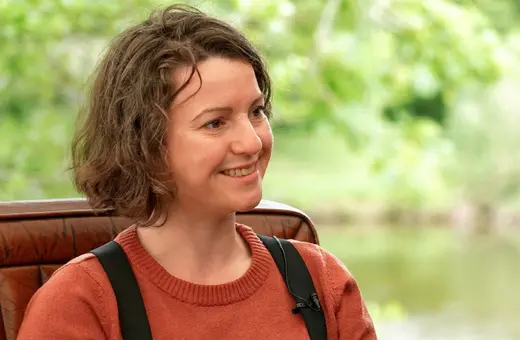Before we look at ways of dealing with anxiety, it’s a good idea to define what we mean by the term. I think it’s helpful to think in terms of three different kinds of anxiety.
First of all, there is ‘instinctive anxiety,’ which is based on threats or dangers to our survival. This is what we experience when walking near the edge of a high cliff, in deserted city streets at night, or when someone verbally abuses us or threatens us with violence. We instinctively feel anxiety in such situations, as a warning to be on our toes, or to flee from the potential danger. Instinctive anxiety is healthy. It has evolved over tens of thousands of years of human history, and we probably wouldn't be here without it.
Secondly, there is what I call ‘traumatic anxiety.’ This is anxiety related to traumatic life experiences, usually in early life, that have left behind some degree of psychological sensitivity and vulnerability. Traumatic anxiety arises very strongly when we face situations that remind of us of the original trauma - for example, when a person who experienced abandonment during their childhood starts a relationship as an adult, and finds that their fear of abandonment arises again, filling them with insecurity. Another example is an ex-soldier hearing explosions or screams, which rekindles the trauma he experienced in conflict.
___
"anxiety can be purely cognitive, without being based on instinctive anxiety. This type of anxiety is often based on the future, stemming from the anticipation of events that haven't happened yet, or may not ever happen."
___
The third type of anxiety is what could be called ‘cognitive anxiety.’ Sometimes this acts upon instinctive anxiety, picking up on dangers and inflating them. For example, fear of flying begins with an instinctive sense of danger, which for most people quickly fades away as they get used to flying. But for others, this instinctive fear is inflated by thoughts - for example, imagining that the plane might crash or that someone might open the emergency exit, picturing themselves five miles above the ground, remembering stories they’ve read about plane crashes…In a similar way, a person who is walking through the countryside as night starts to fall might imagine that wild animals are creeping towards them, or that people are waiting behind trees to attack them.
However, at other times, anxiety can be purely cognitive, without being based on instinctive anxiety. This type of cognitive anxiety is often based on the future, stemming from the anticipation of events that haven't happened yet, or may not ever happen. It is based on ‘what if?’ questions like ‘What will happen if I lose my job, or my wife leaves me? What if I mess up and make a fool of myself? What if I’m not able to cope? What if I take a risk too far and lose everything?’
Cognitive anxiety can also manifest itself in a very subtle way, as a kind of background sense of unease in our minds - a pervasive sense of restlessness caused by the constant activity of our minds. Whenever our attention isn’t occupied, our minds tend to chatter away in a random way. This constant ‘thought-chatter’ creates a fundamental disturbance inside us.



















Join the conversation